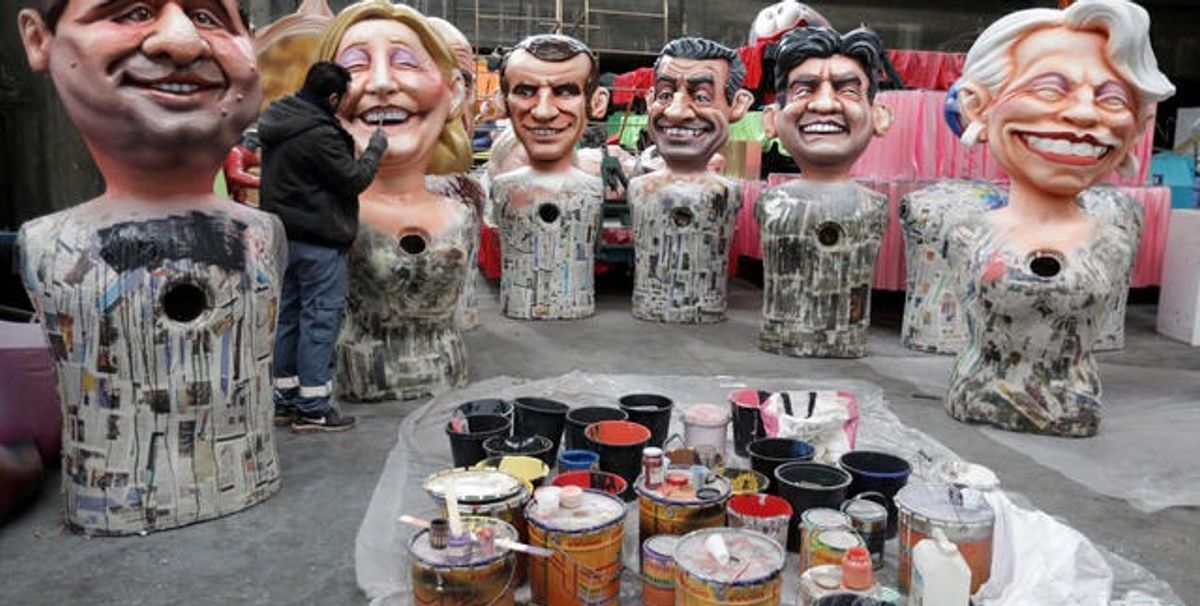The results of the impending French presidential election could radically change the country’s political landscape and alter the balance of power between London and continental European market places, casting a cloud of uncertainty over France’s resilient art trade.
Although attendance and sales at Paris’s leading art fairs, such as Fiac, the Biennale des Antiquaires, PAD and Paris Photo, suffered in the wake of the deadly terrorist attack in the capital in 2015, the city’s auction houses bucked the global downwards trend in 2016: turnover at Christie’s France rose 4.5% to €244.6m, Sotheby’s France rose 4.3% to €220m, and Artcurial rose 10% to €210m. Only Drouot reported a very modest slip in sales from €375m to €370m.
“Within a complicated global context, Paris is doing better than expected, and is gaining strength against other components of the international art market,” says Artcurial’s chairman Nicolas Orlowski. That strength is largely based on exporting the cultural heritage stored in France’s castles and stately homes. “Nearly 80% of what we sell for more than €50,000 goes abroad, three quarters of which originate in France,” says François Tajan, Artcurial’s deputy chairman.
Whether that is enough to cushion the potential shocks of the next few months, however, remains to be seen.
The effects of a populist victory Buoyed by a Europe-wide populist revolt, the emergence of the far-right National Front leader Marine Le Pen as a presidential contender is sending shivers down many art world spines, not least because it is playing out against the background of looming Brexit talks in which France, a founding pillar of the European Union, will surely exercise huge influence, though in what direction will depend on who wins this election.
Le Pen’s election manifesto includes pledges that are fundamentally hostile to art market economics, such as leaving the single currency, quitting the EU (which would put an end to the free circulation of goods), and implementing what she calls an “intelligent protectionism” with a 3% tax on imports.
Opinion polls show Le Pen, once an outsider, likely to come out on top in the first round of the election, on 22 April, with about 25% of the vote, followed by the conservative candidate François Fillon and the progressive, upstart candidate Emmanuel Macron with about 20% each, and then the Socialist Party’s Benoît Hamon with around 18%. In the final one-on-one election, on 7 May, the polls show Le Pen losing to any likely opponent, though polls don’t inspire much confidence after the Brexit vote and Donald Trump’s victory in America.
At the age of 51, the prominent Paris dealer Kamel Mennour says he has never bothered to vote, but “for the first time in my life I’ve gone to City Hall to register on the electoral roll. I don’t know yet who I’ll be voting for, but I know who I’ll be voting against. Anybody’s better than Le Pen.”
Tax: the devil is in the detail Since Brexit negotiations have not yet started and elections are fought on soundbites, most candidates have yet to put forward detailed policies. Only Emmanuel Macron’s campaign responded to our questions, confirming that the broadly pro-market candidate had no plans to rescind an existing wealth tax exemption for works of art. For the French art market that could be important: the exemption encourages wealthy collectors to invest in art because it allows them to push down their taxable assets below the threshold at which the tax is applied. Conversely, however, it also discourages them from selling their works.
Late last year, a member of the National Assembly and a Fillon supporter, Michel Herbillon, presented a parliamentary report with 28 proposed measures to support the French art world, including multiple subsidies to grow France’s presence in the international market and tax breaks to encourage art investment. Symev, the French auctioneers’ federation, almost simultaneously put forward a programme calling for a mix of tax incentives and deregulation to make the French auction market more competitive with London and New York. “What we really need is more deregulation,” says its president Jean-Pierre Osenat. “Both Fillon and Macron say they want to simplify the art market’s regulatory framework.”
The curveball Up until recently, a Le Pen loss seemed all but assured, but recent allegations of nepotism and fraudulent use of taxpayers’ money have derailed the once front-running candidate Fillon, who has warned that his Republican Party’s core constituency of conservative Catholic voters is more likely to shift rightwards than leftwards if he falls out of the race. Equally, an elimination of the Socialist candidate Hamon could see Le Pen pick up swathes of disenchanted blue collar voters.
The scope for any significant fiscal incentive for the art market, however, seems ultimately limited because the Socialist party’s Hamon, the most stimulus-minded of the four candidates, is the least likely to win.


